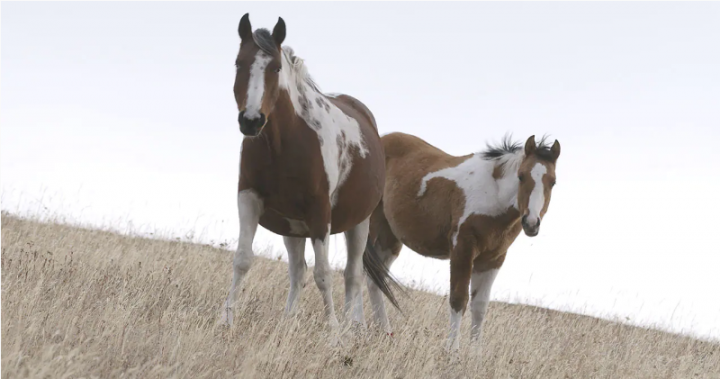The docuseries that introduced audiences to a world of blueberry heists and bee-stealers is back for a second season of true crime with a Canadian twist. CBC’s Farm Crime goes beyond small town paper headlines for an incisive yet humanizing look at the unusual crimes sweeping rural areas from coast to coast.
The new season, which premiered on CBC Gem on April 1, doesn’t mess with the successful formula of the first. The episodes are slightly longer this time around, giving more time to explore everything from canola capers in Manitoba to the invasion of the murder hornets on Vancouver Island.
The novelty of these crimes often overshadows the public’s perception of their seriousness, especially when urbanites only glimpse them in passing as a headline or a viral meme. Geoff Morrison, the series’ producer, says Farm Crime digs deeper.
“It gives you a real appreciation for that work and an understanding of the hardships that occur when these types of incidents happen.” said Morrison. “Hearing about those kinds of reactions was one of the most rewarding things about season one.”
The second season has six episodes, from murder hornets on the West coast to black market baby eels and stolen lobster over in the Maritimes, to the search for a canola thief in Manitoba and two very different stories about stolen horses.
“I’ve always thought about it in very broad terms of what can constitute a ‘farm crime’ documentary,” said Morrison. “In this season, there’s an episode about an invasive species. In that case, the victim is the honeybees.”
The invasion of Asian giant hornets, also called ‘murder hornets,’ was news that quickly became a running joke on the internet in spring 2020. The memes went something along the lines of, “First a pandemic, then an invasion of killer hornets that bite off the heads of honeybees. What next?!”
Like the series did with the viral blueberry heist in its first season, Farm Crime cuts through the noise and looks at the serious implications of this invasive species. While the hornets couldn’t be put behind bars, a team of beekeepers across Nanaimo risked potentially fatal stings to fight their spread.
“These were examples of a story being perceived in a tongue-in-cheek and silly kind of way,” said Morrison. “What we really wanted to do with that episode, and with the series in general, is peel back on that.”
The ‘Canola Caper’ episode sees two women, an RCMP officer and a scientist, working together in the renewed hunt for a grain thief in southern Manitoba. Women also lead the chase in the two stories about stolen horses this season.
“In both cases, I liked how the stories and the narratives were really driven by these strong female characters who did the work of finding the horses without much help without any law enforcement,” said Morrison.
One of those stories, “My Father’s Horses,” is one of most gut-wrenching of the season. A woman from Stoney Nakoda First Nation goes to great lengths to track down her father’s horses and bring them back to him.
“I think we were really touched by the experience of this woman and her father and how unique their connection to horses was,” said Morrison. “The fact that this woman saw how much her father was hurting and wanted to do anything she could to try and help him was touching.”
A common thread across this season is the explosive impact of a theft or crime on a tight-knit community. Morrison directed “The Lobster Looting at Long Cove,” capturing the shock and sense of betrayal that happens when an unthinkable crime happens in a town where no one even locks their doors.
Another theme that emerged was one of conservation. From the murder hornets to “The Million Dollar Baby Eel,” the second season of Farm Crime examines the impact of crimes against nature.
“We’re so used to hearing hard crime stories in the news, like murders and assaults, and I think it’s easy to understand what the consequences are there,” said Morrison. “But in farming and agriculture, it’s a world where we don’t really understand the true costs of it in an emotional sense and what it does to the people involved.”
“The one thing I hope people take away from this season – similar to the first season – is to have a little bit more empathy and respect for these people.”
Farm Crime Season 2 is now streaming on CBC Gem.













